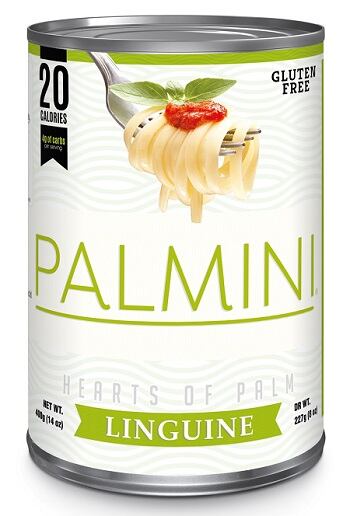While diets have diversified beyond the low-carb craze in recent years, many consumers are still actively avoiding carbohydrates and as a result, the traditional pasta category has taken a hit.
According to market research firm Mintel, there is still a real sense of “carbophobia” going on across the globe. In the US, growth of pasta between 2011 and 2015 was completely flat and gluten-free grew (17% of pasta products launched in 2016 were gluten-free, up from 5% in 2012). In addition, more than two-thirds of US consumers (41%) perceive rice and grains to be healthier than pasta and many are looking for better-for-you alternatives to conventional wheat-based pasta.
“The trend for gluten-free and low carb diets and the vilification of wheat as a contributor to a variety of ailments, including weight gain, have contributed to the flat and declining sales of pasta in many key markets,” Jodie Minotto, global food and drink analyst at Mintel, said.
“The pasta category is vastly different to what it was even five years ago. Wheat-free, gluten-free and better-for-you options are now part of the standard pasta range.”
Hearts of palm pasta takes shape
Palmini is part of Tejada’s food import business, OA Foods, which imports quinoa and chia in bulk selling it to US restaurants.
“We started importing quinoa back in 2012. Back then, nobody knew what it was…It was this very novel product,” Tejada told FoodNavigator-USA.
One restaurant owner told him about the booming zoodles craze and Tejada decided to take part with a new interpretation of the trend.
“I had tried hearts of palm in pasta form once…And then it just clicked from that point,” Tejada said.

“It turns out that what I had tried was completely 100% manual. Doing it manually is easy, but doing it on a large scale becomes complicated.”
OA Foods spent roughly two years developing a specialized, patent-pending machine that is able to crank out noodles made from hearts of palm - a crunchy vegetable harvested from the center of the cabbage palm tree - on a commercial level.
According to the company, over 90% of Palmini is water and one serving contains 20 calories, four grams of carbs, two grams of fiber, and is naturally gluten-free.
But what does Palmini taste like? According to Tejada, Palmini noodles are a “bit crunchy” when eaten right out of the can, but boiling the noodles creates a softened texture similar to regular pasta.
“It’s one of those things where you actually need to try it to see if you like it or not,” Tejada said. “If you fall in the category that you liked the product, then this is going to be an absolute amazing alternative to pasta.”
The brand will be increasing in-store demos of Palmini pasta to help familiarize consumers with the product, Tejada said.
Hearts of palm are the edible cores from palm tree stems. They may be packaged fresh, or jarred in water, and served raw or cooked. They are rich in fibers, potassium, iron, zinc, phosphorus, copper, vitamins B2, B6, and C. Palmini's product is made from cultivated palm trees, says the company: "We do not cut the entire tree. The same tree will grow over and over making it environmentally sustainable."
Plan for expansion
Amazon has been a strong sales driver for the brand as it helps reach parts of the country where Palmini is not stocked in physical retail locations at the moment.
Palmini is currently the No. 2 best seller in the entire pasta and noodles category on Amazon, behind Miracle Noodle (a zero-carb pasta) and ahead of category giant, Barilla. A six-unit case retails for $26.99 on Amazon and a single 14-ounce can is $9.99.
The pasta alternative brand also struck a deal with Shark Tank celebrity investors, Mark Cuban and Lori Greiner, earlier this year for $300,000 for 25% equity of Palmini.
Palmini plans to bring its pasta substitute to more physical retail locations next year to build on its triple-digit annual growth.
“This year we’re going to grow tremendously from what we were. We’re going to probably end up with a 500% growth from last year,” Tejada added.
